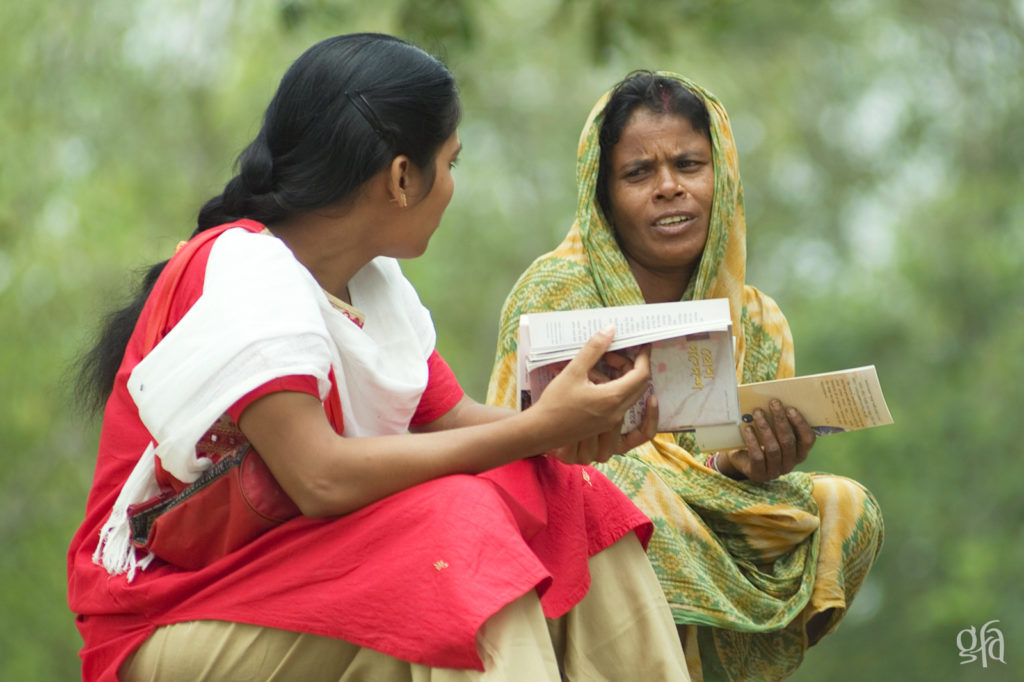Some of us are old enough to remember grandparents, aunts and uncles who could not read or write. Yes, right here in the United States. Those we may recall were the children of parents who had been prevented from learning these essential skills because their survival was existential.
Their progenitors had to work the family farm to ensure there was food on the table. Others’ lives had been disrupted by civil war and local conflicts. Some lived in places too remote to have a school nearby. The common causal denominator, regardless of specific circumstances, was poverty. It still is.
Illiteracy and poverty are like the proverbial chicken and egg. Poverty contributes to illiteracy, and illiteracy perpetuates poverty.
A special report on literacy
Gospel for Asia released a special report earlier this month that describes illiteracy as “a kind of intellectual limbo, and no matter how naturally intelligent a person might be, the very descriptor ‘illiterate’ indicates inferior mental capability.”
That report reveals that poverty and illiteracy are still intimately entwined as evidenced by 250 million South Asian women who can neither read nor write. READ Global adds that more than 480 million people — men, women and children — are illiterate in South Asia.
These two groups, among many others, realize that “when parents can’t read, they can’t take care of their families in simple ways.” One mother was thrilled that she was now able to read and understand the instructions on medication bottles, giving her much greater confidence that she was administering the right medication to the right child.
A special need for literacy
Every report on literacy or illiteracy points to some particular need, some door that literacy opens.
Lest we forget our calling, imagine, if you will, a young boy finding a colorful leaflet in the street, but he cannot read the words. Imagine that he runs home and asks his mother what it says. Imagine she can’t tell him what it means because she also cannot read it. Imagine that it says,
イエスはあなたを愛している
Can you read it? Probably not. Now you know how the mother feels. It must be something important, but she can’t tell for sure. Imagine how the little boy feels. He was excited to learn what it says, but his mother can’t tell him.
Frustrating, isn’t it? What if the mother is right that it is something significant? What will that mean for her future and for her son’s?
Gospel for Asia (GFA) is committed to promoting literacy, particularly among women and children. The group provides supports to local Asian workers who train women to read and write. In 2018, nearly 62,000 women learned to read and write through Gospel for Asia (GFA) literacy training programs. Another 70,000 children were taught to read and write in Gospel for Asia (GFA)-supported Bridge of Hope centers. Those women and children can now read the most important message they will ever see.
イエスはあなたを愛している
“Jesus loves you.”
To read more news on Literacy on Missions Box, go here.
Sources:
- Gospel for Asia, Literacy: One of the Great Miracle Cures
- READ Global, Providing Holistic Education to Rural Communities
Image Source:
- Gospel for Asia, Photo of the Day
